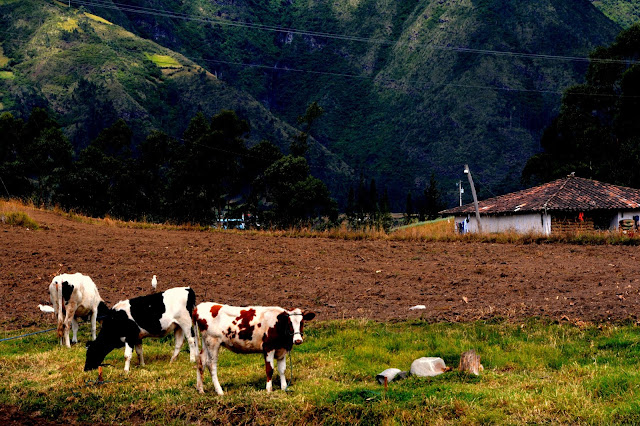Napu runa, the Amazonian Kichwa people of Ecuador, tell that the group of
stars that they call Wata or Year (the constellation of Pleiades), were
children before.
In total there were three of
them, two boys and a girl. They lived in the jungle together with Yaya
Apustulu. He was a friend of God who had been left on the earth to take care of
the Napu runa.
Wata Wawa, or the Children of the Year, had a grandmother who was a screech
owl, called Wakawa. In that time the brothers Killa, the moon, and Inti, the sun,
still lived on the earth with the rest of the people. As did all of the stars
and many animals.
Wakawa had not become an owl yet but she was married and lived with her
husband. One day her husband left her to go to the jungle to build a trap for
the animals.
When he left he said to his wife: If, for a chance, I might die in the
trap, you must rip my penis out to bury it.
He made the trap and since he was a little slow on though he got inside
of it to try it. The trap fell on him and crushed him. Back at the home Wakawa
could hear her husband cry.
Old Wakawa ran to see him and found him already dead. As her husband had
said, she ripped his penis, buried it and hid it under a jar.
In the ground a sapana grew. Sapana is a large earthworm that looks very
much like a penis.
Every morning the grandmother would wake up to go release herself. She
would move the jar and squat on the earth.
In the afternoon, after she had bathed, she would do the same thing. Her
grandchildren could see this. And they would ask each other: Why grandmother
squats on earth like that? It can’t be grandfather because he is dead. Let’s go
see!
One of the brothers removed the jar and said to his sister: There’s a
worm here. Let’s throw it away. You sit on it and we’ll get the rope.
They span cotton and made a rope from it. They tied the rope over the
hole in the earth and each brother grabbed a hold of one extreme.
When they were ready, their sister squatted over the hole exactly as
their grandmother used to do.
They beat the earth and sapana started to come out. Instantly the two
brothers tightened the rope and tied the worm and pulled it out.
The boys threw the worm against the thorny trunk of a chambira tree. The
noise could be heard far away.
Their grandmother was working on the chakra, sowing corn. When she heard
the noise, she came back shouting: They are killing the grandfather!
While she came towards the house running, the Wata Wawa made a ladder
from wood they found in the jungle. And they were ascending to heaven as fast
as they could.
The sister was carrying a basket and in the basket there was a piwichu
bird. The bird was singing all the way up.
They were already up in the sky when their grandmother finally reached
the house. She shouted at them: Why have you left me? Come back children! Don’t
leave me!
The grandmother cried and cried while she watched her grandchildren
disappearing between the clouds.
On the sky the children, the basket and the piwichu all became stars.
When the grandmother saw this she said: What will I turn into? I will become
Wakawa!
Then she lifted up on her wings and flew away, screeching: Wakawa!
Wakawa!
In her beak she carried the penis of her husband. And from that day on
the screech owl lives eating snakes and worms. It is Wakawa, the grandmother who
was left alone and now cries her sorrows in the night.







































